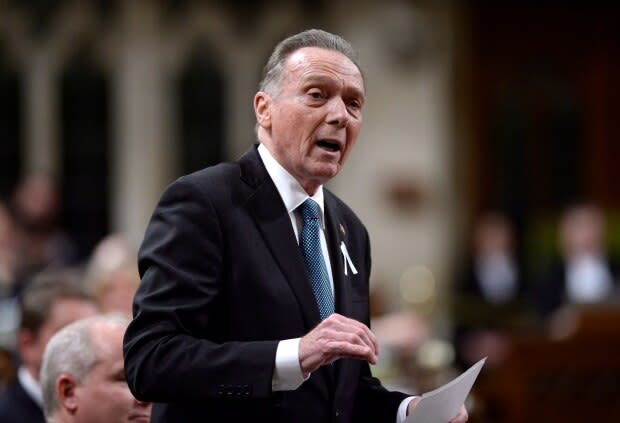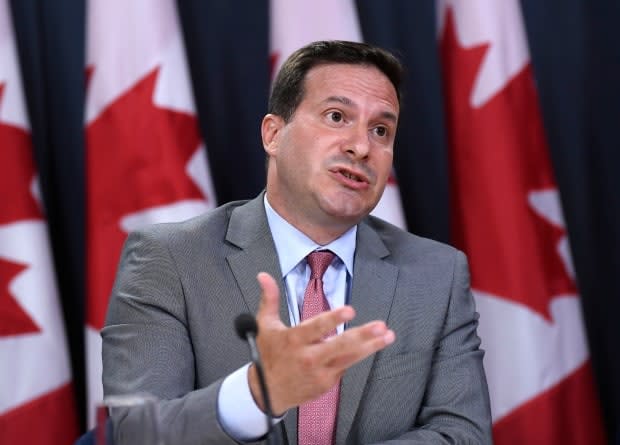Rail blockades could affect vote to change citizenship oath: Conservative critic
Blockades by Indigenous protesters will make it harder for Prime Minister Justin Trudeau's government to adopt planned legislation to add respect for First Nations treaties to Canada's citizenship oath, says Conservative immigration critic Peter Kent.
"It will be difficult to engage in debate of this piece of legislation without the shadow of this week's illegal blockades and the refusal of some in the Indigenous community, and many beyond the Indigenous community, to respect the rule of law," Kent told CBC News on Friday.
Blockades by Mohawk protesters near Belleville, Ont., have snarled train traffic and stalled shipments of goods by rail. They are calling on the RCMP to leave Wet'suwet'en territory in northern British Columbia, where hereditary leaders were blocking roads leading to a construction site for the Coastal GasLink pipeline.

Immigration Minister Marco Mendicino has served notice that he plans to reintroduce a bill first tabled last May in the dying days of the last Parliament. The bill would require new citizens to promise to observe the laws of Canada, "including the Constitution, which recognizes and affirms the Aboriginal and treaty rights of First Nations, Inuit and Métis peoples."
In 2015, the Truth and Reconciliation Commission, which studied the impact of Canada's residential school system, recommended adding respect for treaties to the citizenship oath.
Trudeau made changing the oath one of his instructions to former immigration minister Ahmed Hussen in his 2017 mandate letter. By the time legislation was finally tabled, however, there wasn't enough time left before the House of Commons rose for the summer — then dissolved for the election — for it to be adopted.
Now, the 157-seat Liberal minority government is facing a very different Parliament — one where it needs the support of one or more opposition parties to get legislation passed.
Mendicino has started that process; he reached out to Kent on Friday to discuss the bill.
Kent said it's too early to predict whether the 121-member Conservative caucus will vote to change the oath. However, he said, the blockades should trigger a "dynamic" debate in the House of Commons and within the Conservative caucus.
"This would have received, I think it is fair to say, dynamic debate in the previous Parliament if it had been tabled in time for a responsible consideration," he said. "But I think in this minority Parliament, and given the realities that we see today, it's going to be perhaps more dynamic than it might have been."

Kent said the Conservative Party respects treaty rights and the quest for reconciliation with Indigenous Peoples. He also said it could be argued that a promise in the existing citizenship oath — to observe Canada's laws — encompasses treaty rights.
"Although I stand to be convinced in debate, I'm not sure that the specificity of including treaties, which are respected and which are among our body of laws, need to be specifically added," Kent said.
"This is an opportunity to discuss and debate and hear from all quarters."
Carolane Landry, spokeswoman for the 32-seat Bloc Québécois caucus, said the party will wait to read the bill before deciding whether to support it.
The 24-seat New Democratic Party caucus has not yet responded to questions from CBC News about whether it plans to endorse Mendicino's bill.
Elizabeth Thompson can be reached at elizabeth.thompson@cbc.ca


